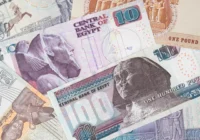Youth comprise more than 20% of Lebanon’s total population. If war spread from Israel and Gaza into Lebanon and disrupted their education, it would be disastrous.
Unfortunately, one million children in Lebanon are deprived of a quality education today in addition to incomplete school terms in each of the past four years.
Lebanon’s economic crisis is an entirely self-inflicted wound caused by corruption. The World Bank has referred to Lebanon’s economic crisis as the worst the world has seen since the mid-19th century. The depreciation of the Lebanese Lira has understandably seen public school teachers go on strike for higher salaries, which currently amount to around $90 per month.
The pain felt by teachers is evident in a recent Centre for Lebanese Policy Studies survey, which includes findings that 73% of Lebanese teachers plan on leaving the education sector and three out of four plan on leaving Lebanon altogether.
However, even before the depreciation of the Lebanese Lira and the strikes, there were still issues getting teachers into classrooms. For example, teacher absenteeism was a widespread issue, and even the average work week under normal circumstances saw less time dedicated to classroom instruction — 10 to 15 hours — than the international benchmark, which is 20 hours.
Lebanon needs a vision for its education sector
Lebanon has been without a president for over a year, and the current prime minister and cabinet are only caretakers. Lebanon’s lack of government means it is unable to tackle meaningful reforms in education.
In a poll of Lebanese parents with students enrolled in public schools, 43% noted that schools lacked multipurpose rooms and 30% reported that schools lacked laboratories. This reflects a need for greater government spending on school infrastructure.
There are straightforward reforms that can make education more cost-effective and support better learning for students. For example, the adoption of solar energy could lower operating costs. Right now, electricity can sometimes cost up to 40% of a school’s budget.
Four out of ten children in Lebanon also face high acute food insecurity, and so the provision of food and water at school also has great potential to improve the quality of learning.
Support from the international community is needed
The biggest challenge for Lebanon’s public sector is getting both teachers and students back to school. The biggest obstacle is the funding mechanism, given that teachers’ current salaries cannot even cover the cost of their commute to work. For this reason, a donors’ conference should assemble to coordinate both financial assistance to the education sector and to identify reforms to improve the sector. It could include both states and non-governmental organizations, civil society groups and diaspora groups.
Western countries should also understand the significance of private schools to Lebanon’s education sector. The majority of Lebanese students — 60% — are enrolled in private schools, and while Lebanon is home to some very elite private institutions, many private schools provide a quality education to disadvantaged students across the country with tuitions of only $150–$300.
While many private schools have religious affiliations, they are committed to respecting Lebanon’s religious diversity and do not proselytize students from different backgrounds. For example, many Catholic schools educate predominantly Muslim student bodies who are exempt from the religious instruction offered by those institutions. The private sector has to be seen as a partner for the international community.
This should be treated as a priority for Lebanon and the region
Lebanon is faced with the prospect of a “lost generation.” Where will the one million youth go who do not have an education today?
The future of Lebanon cannot be held hostage to the country’s political elite, and the international community should not condition additional support for the country’s youth to political reform. Lebanon’s youth are victims of a failed system, and they are owed access to a quality education.
The Lebanese government and international community must prioritize the plight of Lebanon’s youth. A “lost generation” of over one million young people would have disastrous consequences for Lebanon and the wider region for years to come.
This article excerpts findings and recommendations from the recently released policy paper “How to Prevent Lebanon from Experiencing a ‘Lost Generation,’” published by the American Task Force on Lebanon.
[Erica Beinlich edited this piece.]
The views expressed in this article are the author’s own and do not necessarily reflect Fair Observer’s editorial policy.
Support Fair Observer
We rely on your support for our independence, diversity and quality.
For more than 10 years, Fair Observer has been free, fair and independent. No billionaire owns us, no advertisers control us. We are a reader-supported nonprofit. Unlike many other publications, we keep our content free for readers regardless of where they live or whether they can afford to pay. We have no paywalls and no ads.
In the post-truth era of fake news, echo chambers and filter bubbles, we publish a plurality of perspectives from around the world. Anyone can publish with us, but everyone goes through a rigorous editorial process. So, you get fact-checked, well-reasoned content instead of noise.
We publish 2,500+ voices from 90+ countries. We also conduct education and training programs
on subjects ranging from digital media and journalism to writing and critical thinking. This
doesn’t come cheap. Servers, editors, trainers and web developers cost
money.
Please consider supporting us on a regular basis as a recurring donor or a
sustaining member.
Will you support FO’s journalism?
We rely on your support for our independence, diversity and quality.










Comment